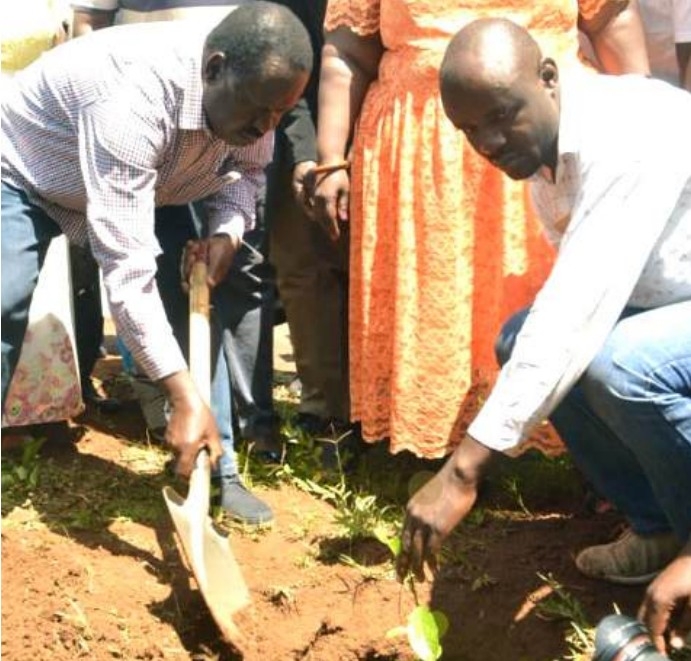The Kenya Agricultural and Livestock Research Organisation has moved to contain the spread of the Maize Lethal Necrosis disease and fall armyworm, which have wrecked havoc in the country.
The research organisation has developed two maize varieties that are resistant to the disease and the pest, with new breeds expected in the market by April next year.
According to Kalro Director-General Dr Eliud Kireger, the viral disease and pest had adversely affected maize production in the country.
He noted this would be a thing of the past in the coming months once the new varieties hit the market.
“Karlo has developed two maize varieties that are resistant to Maize Lethal Necrosis disease and army fall worm and we expect that this will solve the perennial problem that has faced farmers,” he said.
Speaking in Karlo farm in Naivasha, Kireger said that they had passed over the new varieties to private companies for multiplication before availing them to farmers.
“We expect that the new breeds will hit the market by April next year and this is part of the organisation efforts to address food security in the country,” he said.
On tomato, the DG attributed the current pests and disease to climate change, adding that Kalro had developed good agriculture practices to manage them.
“The biggest challenge that has faced tomato farmers is the Tuta absoluta pest but under the new farming practices this will be easily contained,” he said.
Kireger added that the research institution was keen to introduce neglected indigenous fruits to farmers to address their nutrition needs.
He said that Kalro, under a World Bank (WB) project, had embarked on mass production of seedlings of the indigenous fruits.
“We have already released 781,000 seedlings of tomatoes and neglected indigenous fruits seedlings to farmers across the country,” he said.
Last week, the organisation introduced the Kenya Agricultural Observation Platform (KAOP) app, which will provide seven day weather forecast for individual farms.
According to the director of ICT in Karlo Boniface Akuku, for years, farmers had relied on chance and luck in their farming.
“For years, farmers have had challenges in getting real time information on the rain and pest patterns but this will be addressed by on this digital platform,” he said.
Akuku said that KAOP was 95 per cent accurate, adding that it had the capability of forecasting weather for a radius of nine kilometres.
















![[PHOTOS] How ODM@20 dinner went down](/_next/image?url=https%3A%2F%2Fcdn.radioafrica.digital%2Fimage%2F2025%2F11%2F99d04439-7d94-4ec5-8e18-899441a55b21.jpg&w=3840&q=100)
